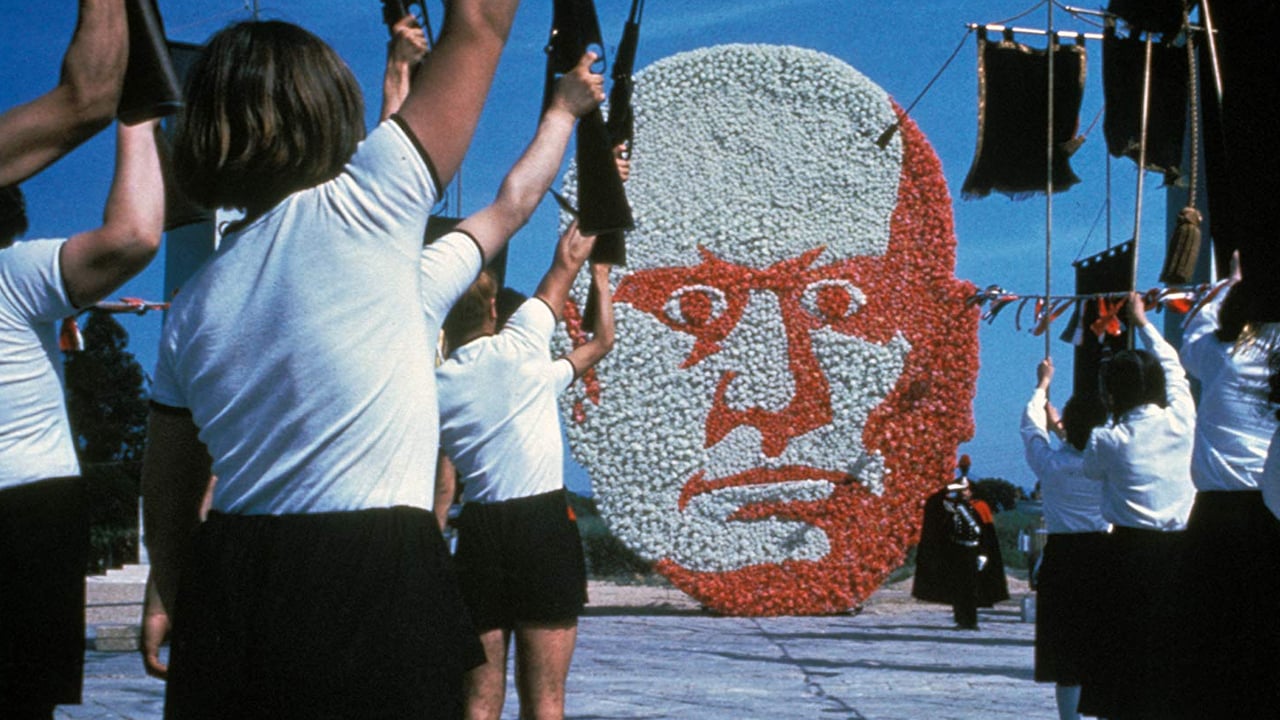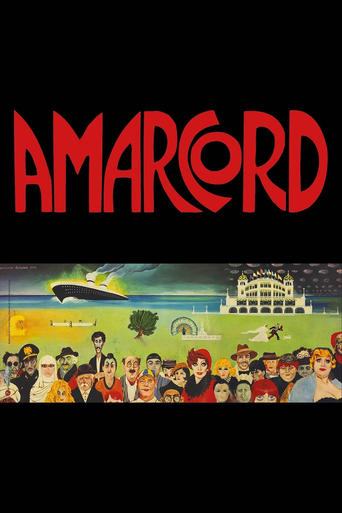



It's a mild crowd pleaser for people who are exhausted by blockbusters.
View MoreI wanted to like it more than I actually did... But much of the humor totally escaped me and I walked out only mildly impressed.
View MoreThis is ultimately a movie about the very bad things that can happen when we don't address our unease, when we just try to brush it off, whether that's to fit in or to preserve our self-image.
View MoreWorth seeing just to witness how winsome it is.
Fellini's love for his home, hometown, family and cinema, it's all on display here. He takes us down the memory lane, down to his first wet dream. Gradisca! The most beautiful woman in town. He tries to get close to her in a dimly lit cinema. No wonder he went on to become a film director. If all of these characters, like the tobacconist who tried to smother him with her enormous boobs, were really around him while he was growing up, we can thank the circumstances for producing such a personality. Fellini's story is warm and humorous. There's a lot of self-humor in there, not only in the form of fart jokes. He mocks Italian mentality, fascism and family life, but at the same time, this is no anti-fascist propaganda, nor is his story set to disparage 'patriarchy' or male lust. He loves Italians and Italian food. Amarcord is a celebration of life, with very interesting female characters, unapologetic about their sexuality and sex life. And the same goes for men - the group masturbation scene is unforgettable!
View MoreAmarcord is an episodic coming of age film from Federico Fellini. The film might have some autobiographical elements but it is a fee flowing almost anecdotal film of eccentric characters including some buxom women in the village of Borgo San Giuliano in 1930s Italy where Fascism is on the rise.There is buxom Gradisca who runs a beauty parlour and arouses men's passions. Volpina the thin blond good time girl, the rotund and even more buxom tobacconist, the tiger like blond schoolteacher. In amongst this is adolescent Titta who plays pranks including on his father who gets extremely irate and his mother who always has to come to his son's defence.The other boys in the town regularly touch themselves and the local priest is obsessed with whether the boys touch themselves and accuses them of masturbating as soon as he looks at them.The film has fantasy sequences such as when a Sultan checks in the Grand Hotel with his harem. It has dark sequences as when Titta's socialist father is brought in for questioning by fascists and abused.The film consists of little vignettes, it opens with a sequence of puffballs signifying that the winter is gone. There is a sequence where fog is so heavy a man cannot find his house even though he is standing outside it.The film in some ways accompanies Fellini's 81/2 and lacks the tight narrative structure of La Strada. It does feel bloated and also strangely empty. This is signified by the ending because it just ends.
View MoreIt's 1930s Fascist Italy. The movie follows the odd quirky villagers of a seaside town. The fascist local government takes control of the eager villagers with comical ridiculousness. The village is obsessed with sex which the Catholic Church tries to suppress.There are some great memorable characters and memorable scenes. The one missing thing is a good compelling lead character. Titta needs to have more scenes as the lead and he needs to be played by a charismatic actor. The vignettes start to get scattered without that central cohesive glue. Some are more surreal than other. The harem in the hotel goes a bit over the top. Otherwise I really like the quirkiness.
View MoreI was laughing out loud while seeing this movie in the theatre yesterday, and so was much of the audience. But of course! There are scenes in this movie that are so honest and so clean that you can only laugh at them, or laugh at yourself, which would be the same thing. Because this movie is about you, me, all of us: Our dreams, our frustrations, our desires, our disappointments. Denying it would be hypocrisy, which we see a lot of in movies today: The obsession of hiding harshness, of being politically correct (and I have to say that the fact that the majority of very negative reviews on this title come from the USA speaks for itself...). We have all been there, actively or passively, maybe only watching, but there. People are the same everywhere! And it is just wonderful to see these portraits of people made with such honest love, without bad intentions or double morals, without prejudices. Maybe a little bit too much nostalgia, but hey, this is a movie of reconciliation with life, after the disillusion of La dolce vita and the sour sweet 8 e mezzo. Fellini is now accepting life with all its beauty - and its miseries. Fantastic. And great fun!
View More